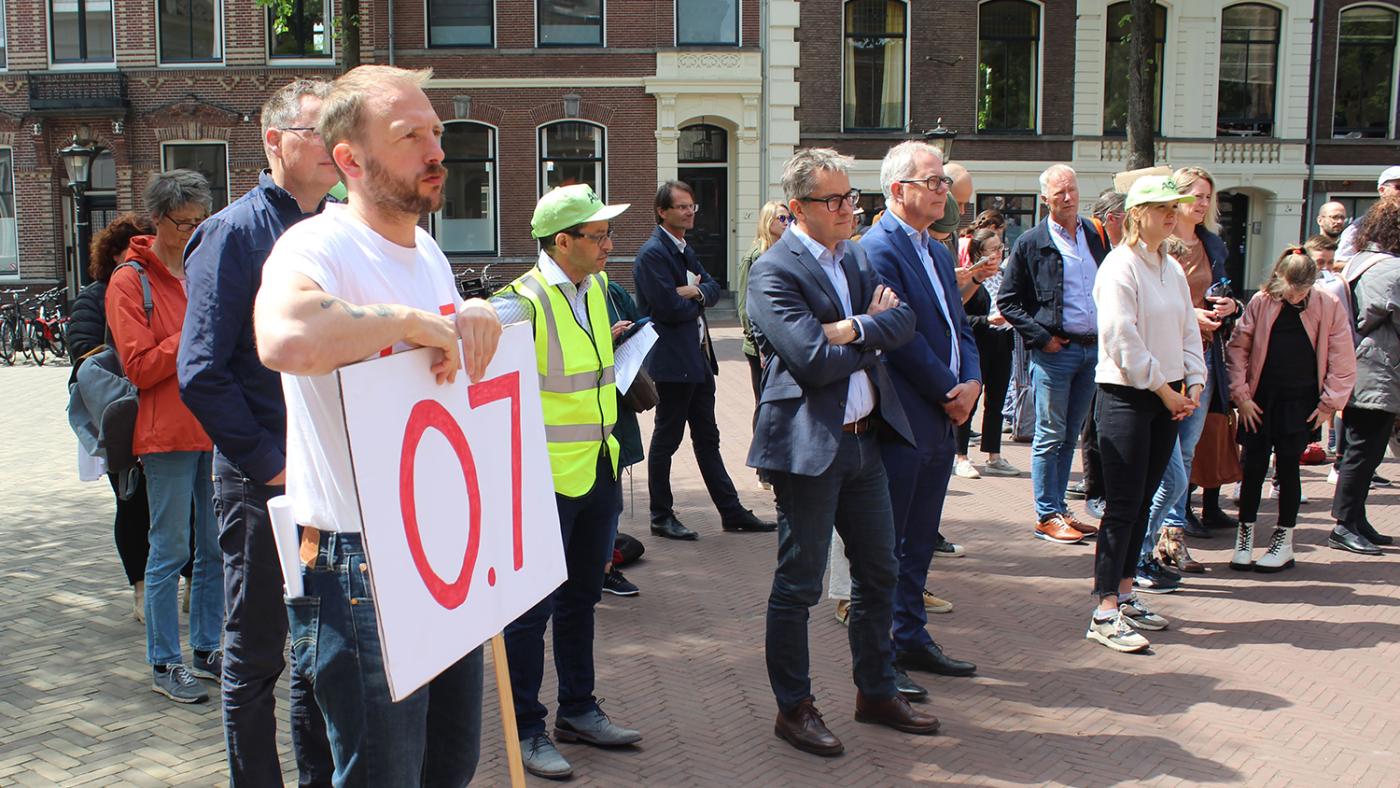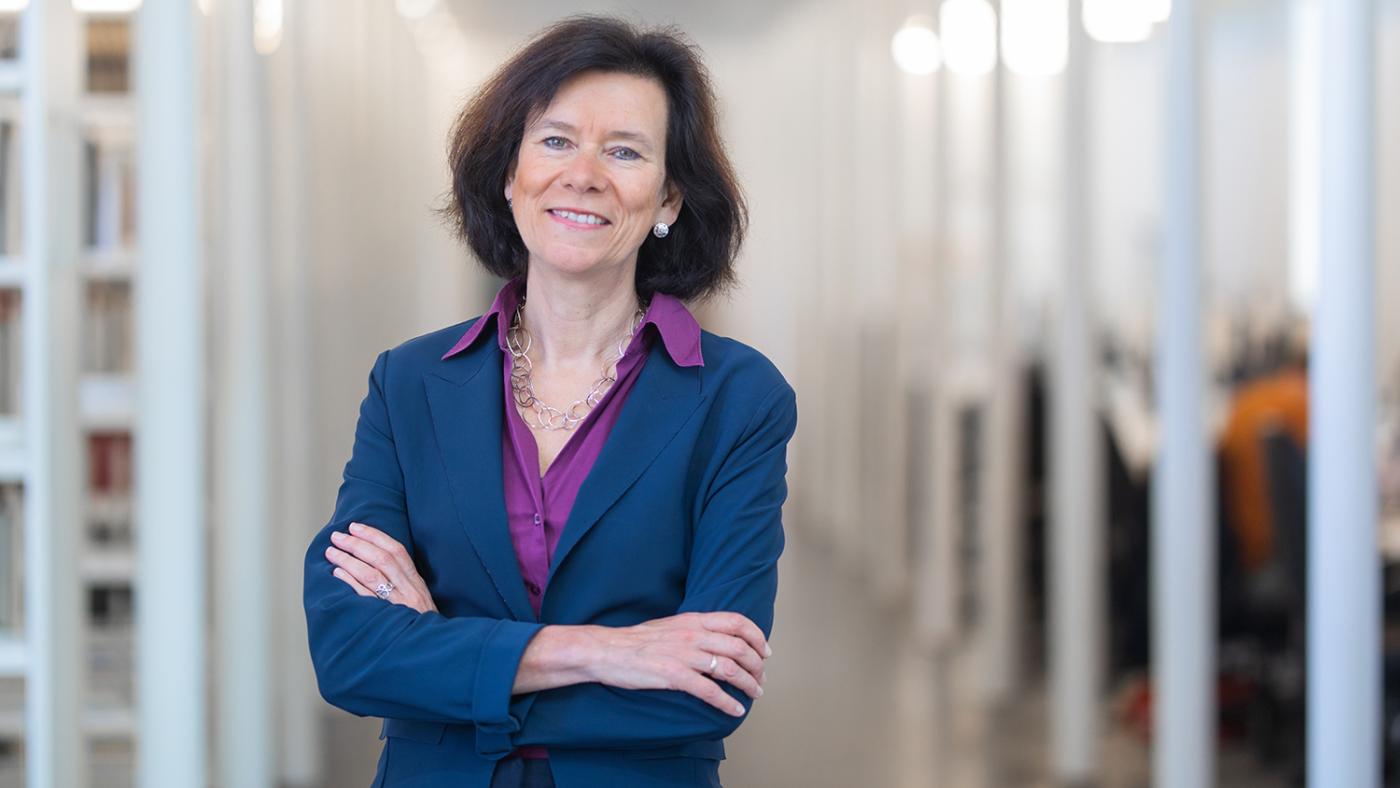Teachers will not get permanent contracts
UU will hire more assistant professors to meet collective labour agreement conditions

Faculties are worried about finances following the wage increase established by the latest collective labour agreement (Dutch acronym: CAO), in August 2023. The raise is going to be reimbursed by the Ministry of Education, but not for employees who have an NWO grant from the second flow and those who are working on a project basis, also known as the third flow. For these two groups of workers, universities will have to cover the increase themselves, which amounts to 10 million euros.
These headaches about money were not anticipated during the CAO negotiations, which went really smoothly, according to the Vice-President of the Executive Board, Margot van der Starre, "although we could have realised sooner that NWO would not be compensating us for that 9 percent increase." It was the first time she served as the main negotiator on behalf of UU. Two important points were achieved for employees: a considerable salary increase to face the inflation and more permanent contracts in the "scientific column".
Cutting back on temporary contracts
Universities promised to reduce the number of temporary contracts for scientific personnel to 13.5 percent in three years. That goes for professors, associate professors, assistant professors, and teachers. The latter means employees who have teaching duties but who do not conduct any research-related activities. A new definition has been reached regarding when a permanent contract can be given. "Up until then, universities counted 4-year contracts as permanent, but now only contracts for an indefinite period can be counted as such," explains Van der Starre. In addition, a one-year contract that is expected to be converted into a permanent one also counts as a permanent one. "Something really out of ordinary must happen for an assistant professor or associate professor not to be allowed to stay after a year, hence this agreement."
Due to these new definitions, as well as the fact that many assistant professors were hired these past few years, the number of temporary contracts at Utrecht University is dropping significantly. Considering the year of 2021 (the most recent data), 17.7 percent of UU's scientific staff members had temporary contracts. This only concerns those who only have teaching duties, many of whom were hired by the Faculty of Humanities and Social Sciences, which both have a lot of students. According to the previous CAO definitions, research universities were not allowed to have more than 22 percent of its scientific personnel under temporary contracts. UU was slightly above this, with 23 and 24 percent, but because no other university in the country surpassed it in this regard, the university was nicknamed "the champion of temporary contracts."

Margot van der Starre. Foto: Arnoud Mooij, Universiteit Utrecht
Teachers have priority
To meet the requirements set by the latest CAO, UU has quite a lot of work to do. For starters, there should be more permanent contracts. According to Van der Starre, universities are free to make their own choices when it comes to this. "Some universities, such as Leiden and Amsterdam, chose to give permanent contracts to teachers as well, but we value 'bidepalism': to get a permanent contract here, you must have a PhD degree and combine teaching tasks with research. That's why we will hire more assistant professors."
The vice-presidents thinks that it should work. The 50 million euros UU will be spending to alleviate work pressure, as well as the starter & incentive grants handed out by the Ministry of Education should enable this. Faculties (particularly those with a lot of students) have received millions of euros in additional funds to finance research without having to apply to external subsidies such as those from the Dutch Research Council (NWO). The latest financial reports show that progress is being made: UU has hired more assistant professors.
Although the Executive Board is not moving an inch when it comes to its "bipedalism" principle (it was not moved by the pleas from instances like the University Council and the Local Consultation), it did listen to another critique regarding temporary contracts during the CAO negotiations. Many teachers complained that they were not considered for assistant professor vacancies even despite having gladly taught students for years. "Certain requirements remain when it comes to assistant professors, of course. But teachers who are already working for us have priority over outside candidates whenever an assistant professor vacancy comes up. That is one of the agreements in the latest CAO."
Win-win
Van der Starre says she "had a lot of fun" participating in the CAO negotiations. She became the main negotiator on behalf of universities because a colleague was sick. The first meeting took place at VU Amsterdam, and a big protest by 0.7, an action group representing temporary teachers, was awaiting them at the entrance. "There I was, onstage as the bad woman, against an entire crowd booing me. I understood that there was a lot at stake for them."
But universities had a lot to lose too, if nothing would be done for this group, explains Van der Starre. "We want to remain an attractive employer for young people. So it was important for us to ensure that there would be more permanent contracts." That wish didn't come from nowhere. "There is a whole history behind it. We're not going from 0 to 100 percent. Previous CAOs also discussed this issue and UU wanted to give its teachers more security by giving them a four-year contract with at least 3.5 days a week. Unless they were not interested in such a contract — because they had another job elsewhere, for example. Practical teachers are a good example of employees who have another job elsewhere and only come here for a few hours. But things can always improve, of course."
The second most important topic was a wage increase. Initially, trade unions asked for a 14-percent raise, to match the inflation. "But that wasn't possible. We can't give them any more than what we receive from the ministry."